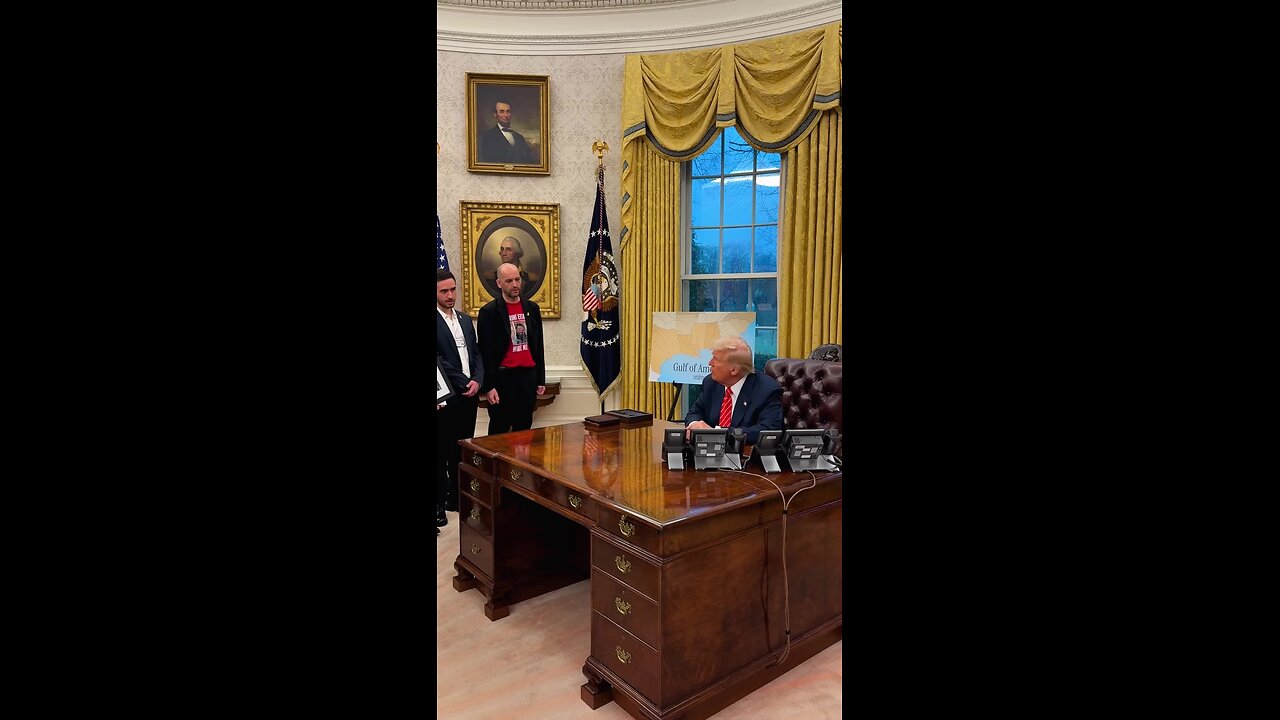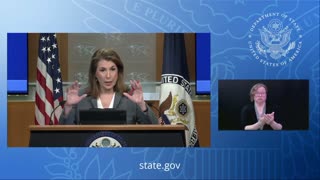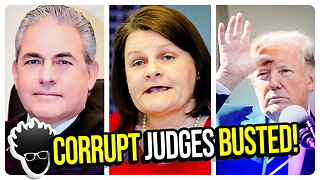Premium Only Content

ACLU Counsel Speaks After Federal Court Hearing on Deportations Under Alien Enemies Act
Lee Gelernt Addresses Concerns Over Government Actions
Lee Gelernt, lead counsel for the ACLU, spoke following a critical federal court hearing on the government’s use of the Alien Enemies Act for deportations. Gelernt expressed deep concerns that the government may have violated a federal court order, possibly even knowingly. The judge appeared skeptical of the government's arguments, some of which, according to Gelernt, were implausible on their face.
Unprecedented Use of the Alien Enemies Act
Gelernt highlighted the extraordinary nature of this case, stating that the Alien Enemies Act has only been invoked three times in U.S. history, all during declared wars. He emphasized that Congress has clearly stipulated that the act can only be applied when a foreign nation is at war with or invading the U.S. He argued that the current use of the act raises fundamental separation-of-powers concerns, as the administration appears to be circumventing Congress’s authority.
Lack of Due Process and Secretive Actions
Even if the Alien Enemies Act could legally be applied in this situation, Gelernt stressed that individuals must be given due process. He noted that people who dispute their alleged gang membership should have the opportunity to prove they are not part of such organizations. However, the government has not provided that opportunity, instead carrying out secretive deportations. Many of those removed were sent to El Salvador without transparency, and the administration has not disclosed their identities.
Gelernt also cautioned against accepting the government’s characterizations of these individuals at face value. He referenced past instances, such as Guantanamo, where detainees were initially labeled as the “worst of the worst,” only for it to later emerge that many had no serious criminal records.
A Constitutional Crisis in the Making?
One of the most troubling aspects of the case, according to Gelernt, is the administration’s apparent disregard for federal court jurisdiction. He warned that the U.S. is edging toward a constitutional crisis, as the executive branch continues to dismiss the authority of federal judges. While the term “constitutional crisis” is often used loosely, Gelernt underscored that the administration’s defiance of judicial rulings sets a dangerous precedent.
Federal Courts Moving Quickly, But Stakes Are High
Despite concerns about the administration’s actions, Gelernt acknowledged that the courts are acting swiftly. He pointed to the judge’s rapid response in blocking the deportation of five named plaintiffs. Within hours of the ACLU’s filing, the judge issued a temporary restraining order (TRO) and later expanded it to cover all individuals affected by the government’s proclamation.
Had the government complied, many deported individuals might not currently be in Salvadoran prisons, where they face severe risks. Instead, the government has argued that it cannot share facts due to national security concerns, even while publicly discussing the deportations on social media.
Efforts to Bring Back Deported Individuals
Gelernt and his team are now pushing for the federal judge to order the return of these individuals. While courts generally cannot command foreign governments to act, this situation is unique. The U.S. appears to have significant leverage over El Salvador, possibly even financing the detentions. Given this, Gelernt hopes the judge will exert pressure to secure their return.
Broader Implications for Civil Liberties
This case is not just about the individuals currently detained—it has profound implications for civil liberties. If the government’s interpretation of the Alien Enemies Act goes unchallenged, any group labeled as a serious criminal organization could be subject to similar deportations. The administration argues that its use of the act is unreviewable by federal courts, a claim that, if accepted, could pave the way for widespread and unchecked government power.
Gelernt concluded by reiterating the importance of judicial oversight and the rule of law. The ACLU remains committed to challenging these actions to ensure that constitutional protections are upheld.
Conclusion
As the legal battle continues, the case raises fundamental questions about executive power, due process, and judicial authority. With the administration refusing to fully comply with court orders, the coming weeks will be crucial in determining the outcome of this unprecedented legal challenge.
-
 38:31
38:31
White House press secretary Karoline Leavitt
1 day agoDepartment of State Press Briefing – April 24, 2025: Tammy Bruce Addresses Key Foreign Policy Issues
1.13K2 -
 LIVE
LIVE
RalliedLIVE
2 hours ago $0.45 earnedWarzone Domination w/ Ral
169 watching -
 1:10:17
1:10:17
Sarah Westall
4 hours agoWorld Leaders Increasingly Display Panic Behavior as Economic Change Accelerates w/ Andy Schectman
34.5K5 -
 LIVE
LIVE
Motherland Casino
1 hour agoScar x Ayanna
65 watching -
 41:57
41:57
BonginoReport
6 hours agoProtecting Kids From WOKE Ideology in School (Ep. 35) - Nightly Scroll with Hayley Caronia -04/25/25
90.5K24 -
 LIVE
LIVE
SpartakusLIVE
4 hours agoFriday Night HYPE w/ #1 All-American Solo NUKE Hero
122 watching -
 LIVE
LIVE
crystalkittn
34 minutes agohappy friday lets get littt✨ !motherland
31 watching -
 1:15:07
1:15:07
Kim Iversen
1 day agoThe Left Is Dead — What And Who Will Rise From the Ashes?
91.1K65 -
 LIVE
LIVE
Joker Effect
1 hour agoYOU DON'T UNDERSTAND FREEDOM OF SPEECH IF THIS MAKES YOU MAD!
262 watching -
 1:45:26
1:45:26
vivafrei
8 hours agoSantos Sentenced to 87 MONTHS! Corrupt Judges ARRESTED! Some Canada Stuff & MORE!
126K83